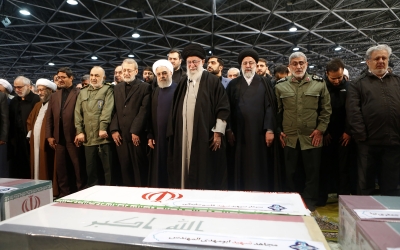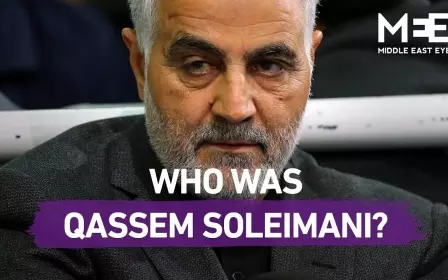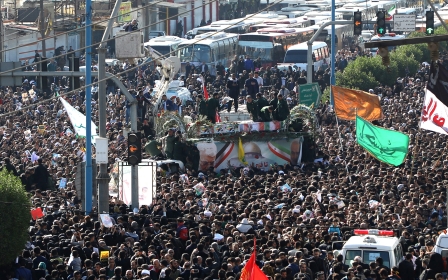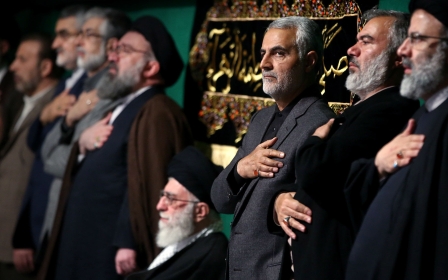Palestinian factions offer Iran condolences at Soleimani's funeral
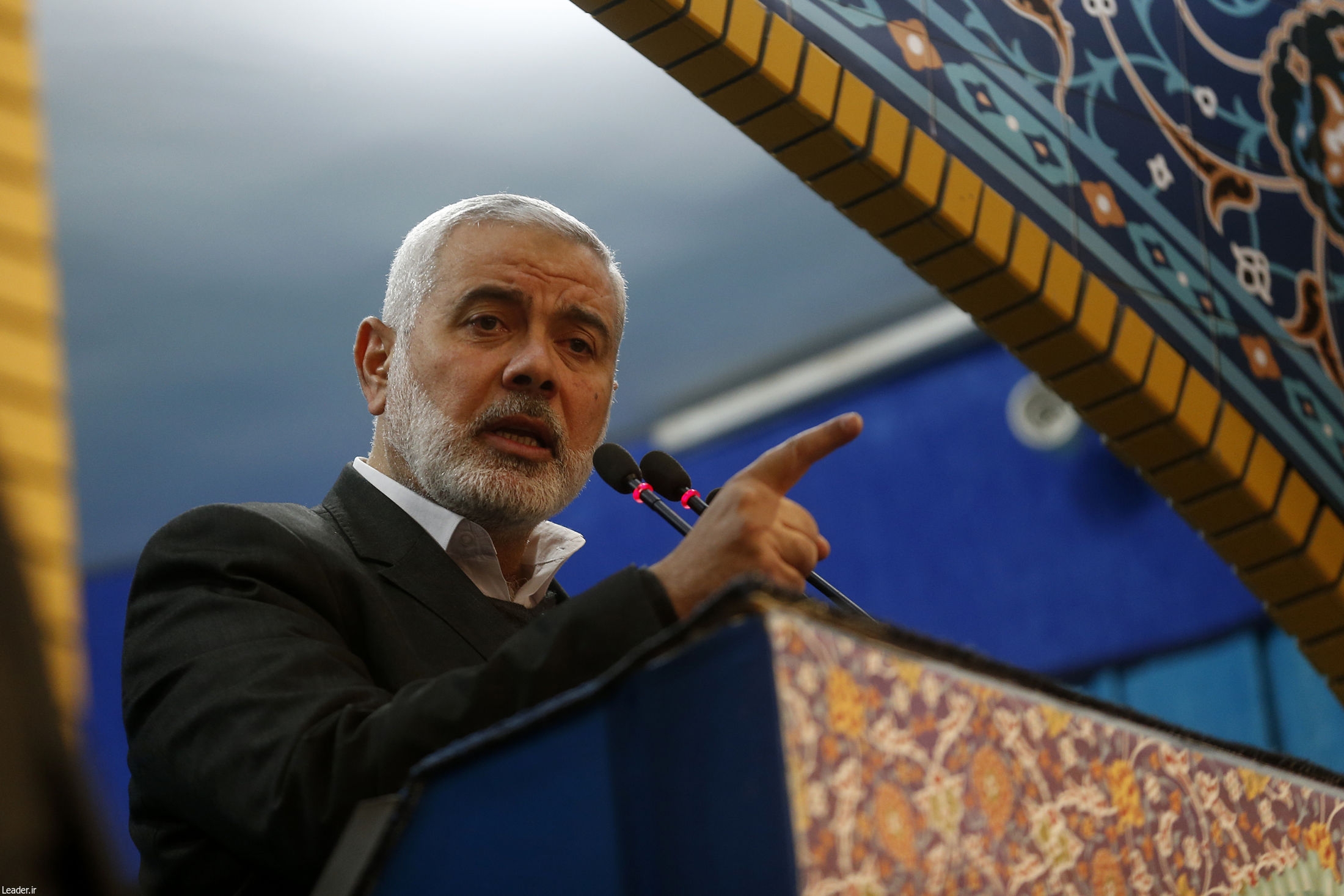
The leaders of a number of Palestinian factions travelled to the Iranian capital of Tehran on Monday to attend the funeral of Qassem Soleimani, the leader of the Islamic Revolutionary Guard Corps' (IRGC) Quds Forces, and Abu Mahdi al-Muhandis, the deputy head of Hashd al-Shaabi Iraqi paramilitary group, who were assassinated by a US drone strike on Friday in Baghdad.
Hamas politburo head Ismail Haniyeh travelled outside the besieged Gaza Strip for the first time since 2017 for the occasion.
New MEE newsletter: Jerusalem Dispatch
Sign up to get the latest insights and analysis on Israel-Palestine, alongside Turkey Unpacked and other MEE newsletters
In a speech in Tehran, Haniyeh called Soleimani “the martyr of Jerusalem”.
“We came from Palestine to offer condolences to Mr [Ali] Khamenei [Iran supreme leader] and the Islamic Republic of Iran,” he added. “The resistance project in Palestine against the Zionist American project will not be weakened - it will continue, it will not backtrack, and these assassinations will make us stronger to liberate Jerusalem.”
He described Soleimani as having spent his life "defending and supporting the Palestinian resistance" while he was the leader of the Quds Forces.
Ziad Nakhleh, the secretary-general of the Palestinian Islamic Jihad, also attended the funeral.
Nakhleh told Iranian Minister of Foreign Affairs Mohammed Javad Zarif that “Soleimani’s martyrdom is a big loss, but he set an example for Muslims and free men of the world of how to confront America and the Zionist entity,” referring to Israel.
“This assassination will not break the resistance, but will make it more conscious of the enmity of the United States against the Palestinians and people of the region,” Nakhleh said.
In November, Israel assassinated Islamic Jihad leader Bahaa Abu al-Atta in an air strike in the Gaza Strip, as well as trying to kill the group's deputy leader, Akram al-Ajouri, in Damascus.
A source close to Palestinian resistance factions told Lebanese newspaper Al-Akhbar that “there are barely any rockets or rifles in Palestine without Soleimani’s fingerprint on it”.
Other Palestinian factions' representatives, including the Popular Front for the Liberation of Palestine (PFLP), offered condolences at the Iranian embassy in Damascus.
Abbas Zaki, a member of the Fatah executive committee, told Al-Mayadeen TV channel that Soleimani was the “Che Guevara of the Middle East”.
“Assassinating Soleimani will have dangerous ramifications in the region and could be expensive for the United States," Zaki said.
In 1979, the Islamic revolution toppled US-backed Shah Mohammad Reza Pahlavi. Iran then closed the Israeli embassy in Tehran and handed over the building to become the offices of the Palestine Liberation Organisation.
After protests began in Syria in 2011 - which would be brutally repressed, leading to the outbreak of a devastating civil war - Hamas was the only Palestinian movement to close its offices in the Syrian capital of Damascus. As a result, the Palestinian movement's ties with Iran took a hit, as Tehran has been a major backer of Syrian President Bashar al-Assad.
Meanwhile, Islamic Jihad, the PFLP and the Democratic Front for the Liberation of Palestine (DFLP) kept their offices in Damascus and maintained ties with Iran.
In 2017, Hamas leader in the Gaza Strip Yahya al-Sinwar revealed in a rare speech that Qassem Soleimani contacted Hamas's armed wing, the Qassam Brigades, after US President Donald Trump unilaterally recognised Jerusalem as Israel's capital in December 2017. Sinwar added that ties between Palestinian factions and Iran never ceased.
In June 2019, Sinwar thanked Iran again and called for Arab and Muslim countries to follow Tehran's example and support the Palestinian resistance with money, weapons and skills.
Hamas and Iran's relationship warmed in the wake of Trump's announcement, and in October 2018, Hamas used "condolences diplomacy" to send representatives to visit Iran and offer condolences to Iranian victims of a deadly attack that took place in the eastern region of Ahvaz.
Middle East Eye delivers independent and unrivalled coverage and analysis of the Middle East, North Africa and beyond. To learn more about republishing this content and the associated fees, please fill out this form. More about MEE can be found here.


